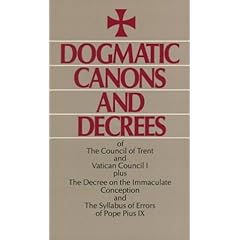 Imperial Decree
Imperial DecreeAfter the Russian Revolution, a government proclamation of wide meaning was called a "decree" (Russian: декрет, dekret); more specific proclamations were called ukaz. Both terms are usually translated as 'decree'.
According to the Russian Federation's 1993 constitution, an ukaz is a Presidential decree. Such ukazes have the power of laws, but may not alter the Russian constitution or the regulations of existing laws, and may be superseded by laws passed by the Federal Assembly. The Government of Russia can also issue decrees which will not contradict the constitution/laws or presidential decrees.
Russia
See Politics of France.
The word decree (décret) is used as a legal term to describe the most important executive decisions from the President or Prime Minister of France. Those decisions must conform to the Constitution and statutes of France, and it is possible to sue for their cancellation in the Conseil d'État. They require ratification by the Parliament to be changed into laws. Decree-laws, usually considered an illegal practice under the 3rd and 4th Republic, were finally replaced by the ordinance procedure since the 1958 constitution.
Outside of the exceptional reserve powers of the President (as stated in Art 16 of the 1958 constitution, exercised only once so far), the executive can issue decrees in areas that the Constitution grants to the responsibility of Parliament only if the a law authorizes it to do so. In other cases, the decrees are illegal and will be cancelled by the Conseil d'État, should somebody sue. There exists a procedure for the Prime Minister to issue ordinances in such areas, but this procedure requires the expressed consent of Parliament (see Art 38 of the 1958 constitution).
Decrees of the Prime Minister are of the two following kinds:
Sometimes, people refer to décrets en Conseil d'État improperly as décrets du Conseil d'État. This would imply that it is the Conseil d'État that takes the decree, whereas the power of decreeing is restricted to the President or Prime Minister; the role of the administrative sections of the Conseil is purely advisory.
Decrees may be classified into:
Only the prime minister may issue regulatory or application decrees. Presidential decrees are generally nominations, or exceptional measures where law mandates a presidential decree, such as the dissolution of the French National Assembly and the calling of new legislative elections.
Decrees are published in the Journal Officiel de la République Française.
simple decrees (décrets simples);
decrees in the Council of State (décrets en Conseil d'État), when a statute mandates the advisory consultation of the Conseil d'État.
regulations, which may be:
- application decrees (décrets d'application), each of which must be specifically authorized by one or more statutes to determine some implementation conditions of this or these statutes; these constitute secondary legislation and are roughly equivalent to British statutory instruments;
autonomous regulations (règlement autonomes), which may be taken only in areas where the Constitution of France does not impose statute law (passed by the legislative branch); these constitute primary legislation;
particular measures, such as the nomination of high-level civil servants. Catholic Church
In some jurisdictions, certain types of court orders by judges are referred to as decrees.
 Lefthit
Lefthit
No comments:
Post a Comment